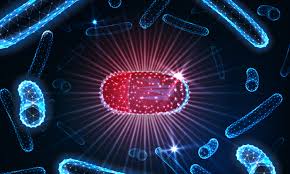
Breaking News
 NEW Yixiang 16kWh LiFePO4 Battery for $1,989
NEW Yixiang 16kWh LiFePO4 Battery for $1,989
 Fed's Powell: Debt is growing fast than economy, and that's not sustainable
Fed's Powell: Debt is growing fast than economy, and that's not sustainable
 S3E5: 120 Days - From White House to Tether CEO
S3E5: 120 Days - From White House to Tether CEO
 Shanghai Silver Price in Dollars
Shanghai Silver Price in Dollars
Top Tech News
 The smartphone just fired a warning shot at the camera industry.
The smartphone just fired a warning shot at the camera industry.
 A revolutionary breakthrough in dental science is changing how we fight tooth decay
A revolutionary breakthrough in dental science is changing how we fight tooth decay
 Docan Energy "Panda": 32kWh for $2,530!
Docan Energy "Panda": 32kWh for $2,530!
 Rugged phone with multi-day battery life doubles as a 1080p projector
Rugged phone with multi-day battery life doubles as a 1080p projector
 4 Sisters Invent Electric Tractor with Mom and Dad and it's Selling in 5 Countries
4 Sisters Invent Electric Tractor with Mom and Dad and it's Selling in 5 Countries
 Lab–grown LIFE takes a major step forward – as scientists use AI to create a virus never seen be
Lab–grown LIFE takes a major step forward – as scientists use AI to create a virus never seen be
 New Electric 'Donut Motor' Makes 856 HP but Weighs Just 88 Pounds
New Electric 'Donut Motor' Makes 856 HP but Weighs Just 88 Pounds
 Donut Lab Says It Cracked Solid-State Batteries. Experts Have Questions.
Donut Lab Says It Cracked Solid-State Batteries. Experts Have Questions.
 Researchers who discovered the master switch that prevents the human immune system...
Researchers who discovered the master switch that prevents the human immune system...
Here's how to eat after taking antibiotics, according to science

That's because the disease-fighting pills blast all of the bacteria in your gut, whether they're helpful or not, and it can take time for this community to rebuild itself after completing a course of the medication. This can lead to gastrointestinal distress including diarrhea, gas, and other types of stomach upset. A researcher at the University of Chicago (UChicago) likens the effects of antibiotics to a forest fire in the gut and compares your diet to the way in which the ecosystem develops afterwards.
"The mammalian gut microbiome is like a forest, and when you damage it, it must have a succession of events that occur in a specific order to restore itself back to its former health," said UChicago's Eugene B. Chang. "When you are on a Western diet, this does not happen because it doesn't provide the nutrients for the right microbes at the right time to recover. Instead, you end up with a few species that monopolize these resources, and don't set the stage for other organisms that are required for recovery."
Chang is the senior author on a study that looked at the effect diets might have on rebuilding the gut microbiome – the community of microbes living in the colon – after the sometimes devastating effects of antibiotics.
He and his team started with two groups of mice. One was fed food mimicking a typical Western-style diet (WD), which is to say it consisted of high-fat and low-fiber foods. The other group ate regular mouse chow (RC), which is low-fat and has a wide range of plant fiber, much like the Mediterranean diet.
The team then gave both groups of mice a course of antibiotics. Finally, in an attempt to restore their gut microbiomes to their pre-antibiotic states, they used fecal microbial transplants (FMT) in which feces from healthy mice who weren't treated with antibiotics were introduced to the colons of the test subjects.
What they found was that the approach worked for the mice who were on the RC diet; their colons were able to allow the reestablishment of a wide range of beneficial bacteria that had been destroyed by the antibiotics. This was true for mice that were on the RC plan before antibiotic treatment as well as those who were on the WD plan before treatment and then switched to the RC plan afterwards.
However, for the mice who had been on the WD plan before and after antibiotic treatment, the FMT simply didn't work; the colons of those mice were unable to reestablish a colony of helpful bacteria. What's more, the researchers found that the mice on the WD plan were also more susceptible to Salmonella infections.

 The day of the tactical laser weapon arrives
The day of the tactical laser weapon arrives

